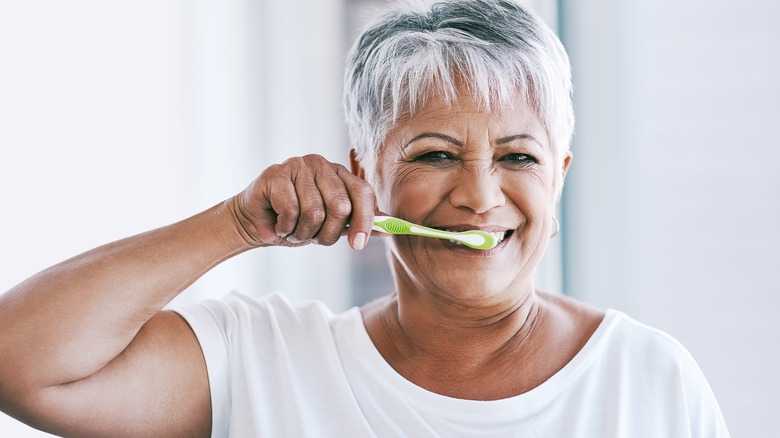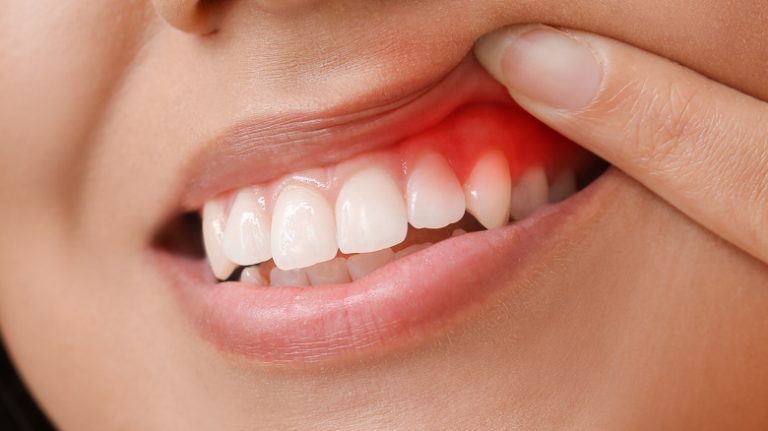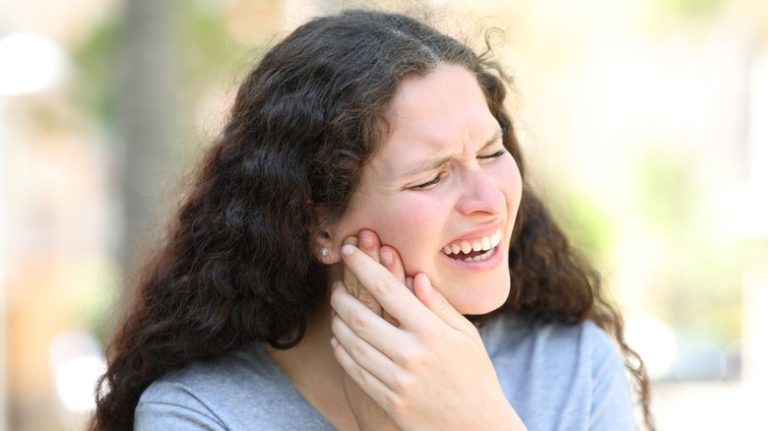For many of us, a bout of bad breath may come on every now and again but is generally only temporary. Perhaps it’s a case of morning breath that strikes periodically or an undesirable side effect of eating something particularly pungent, like garlic. As we get older, however, sour breath can become an ongoing problem for more reasons than one.
First off, experts say there is a physiological component to age-related bad breath. According to Michael Sinkin, DDS, while saliva helps cleanse the mouth of debris and bacteria, saliva production naturally slows as we age, leaving older adults more susceptible to dry mouth and subsequent bad breath. Seniors also tend to take more medications, many of which may induce dry mouth as a side effect. Additionally, practicing regular oral hygiene can become more challenging as we grow older due to memory loss or physical ailments. “[Older adults] may not be able to take care of their dentures or brush their teeth well because they have arthritis,” geriatrics medicine specialist Dr. Taryn Lee tells University Hospitals.
How to reduce bad breath as we age

Some alternate causes of foul breath in seniors may instead be attributed to seemingly common health conditions, such as gastroesophageal reflux disease (GERD), reports Home Care Assistance. The condition is characterized by the regurgitation of stomach acid and food remnants back up into the throat, and is among the top causes of age-related smelly breath in older adults. Another common health condition many of us tend to experience from time to time is sinus issues. But for older adults, Michael Sinkin, DDS explains that parts of our sinuses undergo changes in size as we age. As a result, seniors become more prone to chronic sinusitis. The postnasal drip into one’s mouth that accompanies sinus infections is ripe with bacteria. Pair that with mouth-breathing when your nose is clogged, and that combination of dry mouth and bacteria is a recipe for smelly breath.
To help stave off smelly breath as we get older, experts at Michael Sinkin, DDS suggest keeping up with routine dental exams as well as seeking treatment for related health conditions, such as chronic sinusitis. Additionally, utilizing a tongue scraper and an alcohol-free mouthwash, along with routine brushing and flossing of one’s teeth, are a few things within our control to help minimize age-related bad breath.



